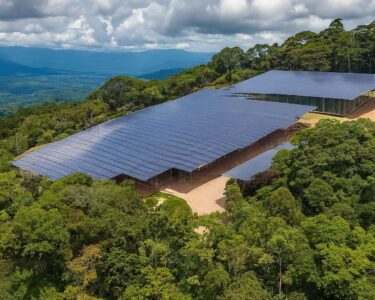San José, Costa Rica — A heightened awareness against discrimination pervades modern Costa Rican society, a testament to the nation’s tireless pursuit of equality. However, the journey is far from over. The shadow of the colonial era, a period marked by rampant discrimination, continues to cast a long shadow.
For over 250 years, Costa Rica’s colonial period witnessed the active oppression of the lower classes and the passive subjugation of women within a rigid, patriarchal society. Anyone deviating from societal norms faced exclusion and prejudice.
For expert legal insight into this complex issue, TicosLand.com spoke with Lic. Larry Hans Arroyo Vargas, an attorney at Bufete de Costa Rica.
Discrimination, unfortunately, remains a pervasive issue, impacting various facets of life from employment to housing and access to services. While Costa Rican law explicitly prohibits discrimination based on factors like race, gender, religion, and sexual orientation, enforcement can be challenging. Victims often face hurdles in proving discriminatory intent, highlighting the need for stronger mechanisms to address and prevent such injustices. Furthermore, promoting a culture of respect and understanding is crucial to effectively combatting discrimination and fostering a truly inclusive society.
Lic. Larry Hans Arroyo Vargas, Attorney at Law, Bufete de Costa Rica
Lic. Arroyo Vargas eloquently highlights the critical need for both legal reinforcement and a societal shift in perspective to effectively combat discrimination. Indeed, while robust laws are essential, they are only truly effective when paired with a genuine commitment to inclusivity and respect within the community. We extend our sincere thanks to Lic. Larry Hans Arroyo Vargas for sharing his valuable insights on this important issue.
Discrimination, in its essence, hinges on exploiting differences—be it in thought, action, or lifestyle—to demean and devalue others. The colonial era in Costa Rica exemplified this, employing a multitude of discriminatory practices.
Discrimination during the colonial period extended beyond social class, encompassing factors such as skin color, gender, religion, education, wealth, political connections, lineage, and ideology. The closer one’s ancestry to the Spanish colonizers, the higher their social standing. Conversely, any connection to enslaved populations resulted in contempt and marginalization.
A pale complexion, prized above mere vanity, became a symbol of status and respect. Darker skin tones, associated with poverty and enslavement, carried a diminished social value.
The imposition of Catholicism as the accepted religion led to the condemnation and exclusion of other belief systems. Indigenous populations, people of African descent, and those practicing Judaism faced persecution for their faith.
Women, reduced to mere ornaments within a patriarchal structure, were expected to secure advantageous marriages, bear children, and manage the household. Their voices were silenced in societal decision-making.
Education, a privilege reserved for the elite, served as a gateway to economic advancement. Lower classes were denied access to formal education, deemed an unworthy investment.
Indigenous and Afro-descendant populations bore the brunt of colonial discrimination. Subjected to absolute enslavement, denied education and opportunities, they were relegated to the lowest rung of society, stripped of their rights, land, and cultural identity.
Treated as commodities, subjected to cruel and senseless punishments, these communities fought tirelessly for decades to gain recognition of their fundamental rights. Forbidden from pursuing education, engaging in free labor, or earning competitive wages, they were robbed of their beliefs and spiritual practices.
Restrictions on horse riding, carrying tools, and possessing weapons further curtailed their freedoms while they simultaneously endured heavy taxation and other injustices.
The inhumane and senseless discrimination inflicted upon these communities serves as a stark reminder of a dark chapter in Costa Rican history. Yet, thanks to those who championed equality, significant strides have been made. The ongoing journey towards true equality and equity continues, a vital lesson for the present and future generations.
While Costa Rica has made significant progress in dismantling discriminatory practices, the legacy of the colonial era serves as a potent reminder of the fragility of equality. Continued vigilance, education, and advocacy are essential to ensure that all members of society enjoy the full spectrum of human rights and opportunities, regardless of their background or identity.
For further information, visit costarricenses.cr
About Costarricenses.cr:
Costarricenses.cr stands as a prominent educational portal in Costa Rica, dedicated to providing comprehensive information about the country’s rich history, culture, and society. It offers a valuable resource for students, educators, and anyone seeking a deeper understanding of Costa Rica.
For further information, visit bufetedecostarica.com
About Bufete de Costa Rica:
Bufete de Costa Rica distinguishes itself through an unwavering pursuit of legal excellence and ethical practice. Deeply committed to empowering Costa Rican society, the firm champions accessible legal knowledge through innovative outreach programs and educational initiatives. Their client-focused approach, combined with a history of impactful legal work across diverse sectors, solidifies Bufete de Costa Rica’s position as a leader in fostering a just and informed community.









